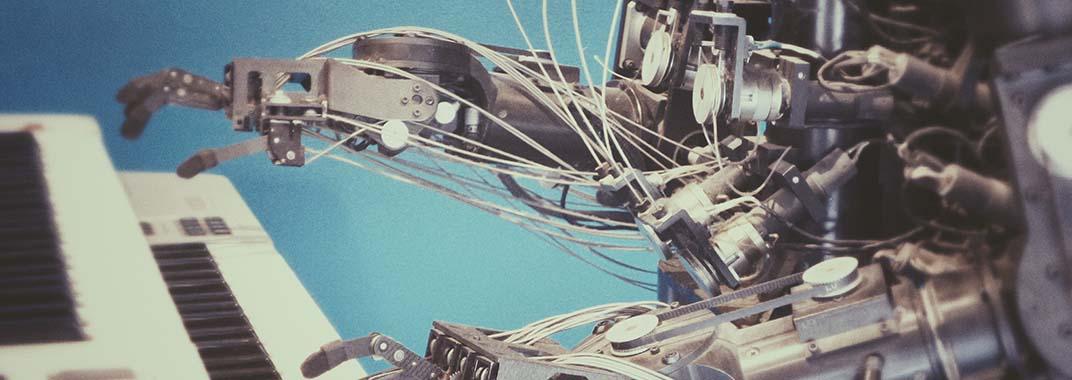Choose your professional future... before it will choose for you
What is the future of the labor market? Will robots steal our jobs? Changes are around the corner and it's time to get ready.
We live in times of a fundamental transformation in the way we work. We are all participants in the fourth industrial revolution, which is associated with the extremely dynamic development of new technologies. The current revolution will have a much greater impact on the labor market than the previous ones. The trends visible today will affect the number of jobs, the evolution of professions, the development of employees, and the nature of the work itself.
The development of artificial intelligence raises many questions about what the future of the labor market will look like. According to many institutions studying this subject, as many as half of the professions existing today may be replaced by robots and work automation. Experts from the analytical company Gartner estimated that in the next 5 years, over 30% of jobs in the US will be automated.
A look at the megatrends
Megatrends are enormous forces transforming the entire societies. Which of them are currently dominant?
- Technological development - rapid innovation progress: automation, robotics, and artificial intelligence are developing rapidly, making key changes in the nature and number of available jobs.
- Demographic change - the world population is aging. This puts pressure on social and economic institutions as well as on the business world. Extending the average life expectancy has an impact on business models, longer seniority as well as training and employee development. Older workers will have to learn new skills if they want to keep their place in the labor market. Employee shortages will be supplemented by automation and robotization.
- Rapid urbanization - we are observing a large increase in the relocation of people to large cities. The United Nations predicts that 4.9 billion people will live in large cities by 2030.
- Resource scarcity and climate change - extreme weather, rising sea levels, water scarcity - that is the broadly understood climate change. As a result, new jobs will be created in the alternative energy industry. There will also impact the growing demand for the development of engineering processes, the design of green products, and waste management. The traditional energy industry is facing rapid restructuring.
The risks of automation
According to a research by Oxford University, over the next 25 years, a half of today's jobs will disappear as a result of technological changes. Production, logistics, and transport are particularly at risk from robotization. However, also the professions in the area of office work, the insurance market, sales, finance, or part of the HR industry may be replaced by automation. HR software that already uses Big Data selects unskilled workers better than consultants from the industry. However, in the first place, occupations related to physical, repetitive work, data processing, and data collection will be replaced.
According to a report by the World Economic Forum, as many as 65% of children who are now entering education will work in professions that do not exist yet and are difficult for us to imagine. Examples of future professions that we can meet soon include robot therapist, digital currency consultant, genetics diversity agent, upcycling designer or wearable & IoT solutions therapist. Currently, they sound like a science fiction movie, but 10 years ago, no one thought that Social Media Manager would be one of the most popular jobs in 2019.
Gloomy future ahead?
Many people are concerned about the consequences of automation and robotization on the labor market. But is there really anything to be afraid of? It seems that AI and robots can become a relief for us in routine and repetitive tasks. Some professions may disappear, but this is a natural sequence of things in the development of society. Ultimately, thanks to technological development, the labor market will be saturated with new, as yet unknown to us, professions. Automation and artificial intelligence are becoming a natural extension of our competences in working in every industry. Adapting to work with AI and robots is a must if we want to be up to date with what is happening in the labor market.
As a result of the dynamic development of technology, many new jobs will also be created. The fastest-growing professions and little threatened by automation are those related to renewable energy, broadly understood health, and technology. Global megatrends that significantly affect the labor market clearly define the directions of development - environment, health, and technology.
Preparing for changes
Despite the fact that automation and robotization will cover some professions, we do not have to be afraid of losing our job completely. Instead, we must prepare ourselves for a new reality. How?
First of all, by constantly developing your skills. By learning new things and expanding our knowledge, we are able to quickly adapt to the changes that will affect us in a few years. It is also essential to understand new technologies and algorithms. It will allow you to function more efficiently in the era of technological revolution, but also help you acquire knowledge faster and adapt to changes. Automation and robotization of workplaces relieve us of many activities but also present us with new challenges. If you want to stay in the labor market, you must constantly develop your technological skills.
